In this blog post, we are making dip using indigenous West African ingredients. This dip is flavourful, simple, protein-packed, and most importantly, delicious.
This recipe was actually highly requested after I shared a video all about Bambara beans. I mentioned they are similar in flavour to chickpeas, without the thick outer skin so I was encouraged to use them for a hummus like dip recipe.
What are Bambara Beans?
Bambara beans are a type of groundnut, meaning they grow underground, similar to peanuts. But unlike peanuts, it is similar to a legume and is just like any other bean. It is indigenous to Western Africa where it grows in arid areas and is known to be drought resistant. Unfortunately, Bambara beans are an incredibly underutilized crop, in the sense that, their cultivation has significantly decreased as more farmers have leaned more into growing high yield high output plants. But, it is still enjoyed across the region in stews like aboboi, or milled into flour and steamed (known as okpa), or just boiled and accompanied with a starchy ball like pap.
Bambara beans still have a lot to offer. It has a high concentration of protein and is high in fibre, magnesium, zinc, iron, potassium and unsaturated fatty acid. In our current climate crisis, Bambara beans, like many indigenous African foods, can be a great source of nourishment with such uncertain weather patterns.
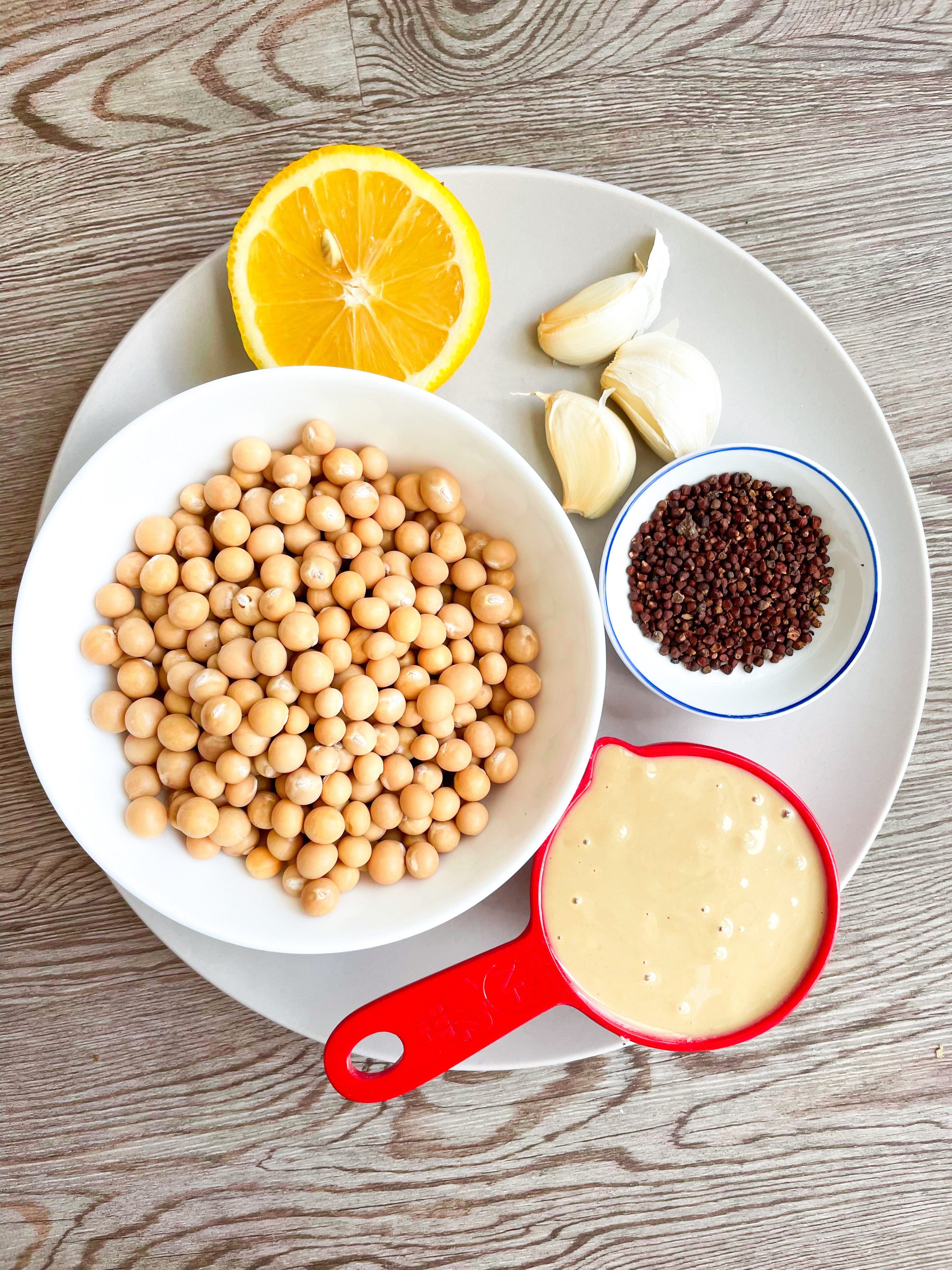
Sesame Seeds and the African Continent
Sesame seeds are known to be the oldest cultivated oilseeds. But did you know that it was originally from Sub Sahara Africa? Yes, sesame seeds have been an integral oilseed in West African cooking for millennia. The ancestor of the cultivated seed originated in Africa and was subsequently cultivated in India. It is also known as benne seed. Unlike our Middle Eastern friends, sesame seeds are not ground into a nut butter but are rather fermented and used as a flavouring agent called ogiri. Ogiri is used in many soups and stews in Sierra Leone, Liberia and Nigeria.
Let’s talk Hummus and this dip.
Originally, I labeled this dish as a hummus because of how close in taste the two were. Bambara bean has such a similar flavour with chickpeas that it was easy to equate the two. I am no hummus expert. In fact, I am soo ill-equipped that I referenced Nisha Vora’s guide to making the best hummus as my reference. You can find her recipe at this link: The Best Hummus. She breaks down the process of making creamy hummus and simplifies it for the non-hummus expert, and addresses components important to traditional hummus. I used her recipe as a rough guide and adjusted it according to my own taste. I also tried to find a reference to where hummus is originally from but there are some disputes on where it is from and thus provide a resource to check it out. (Click here for more) There is a conversation about it originating from present-day Egypt based on an ancient cookbook to mention of it in the Torah, specifically in Ruth, and the claim of it originated in Syria. Some have mentioned that hummus refers to the chickpeas more so than the dish so it will be erroneous to call this a hummus. So hummus-like dip it is.
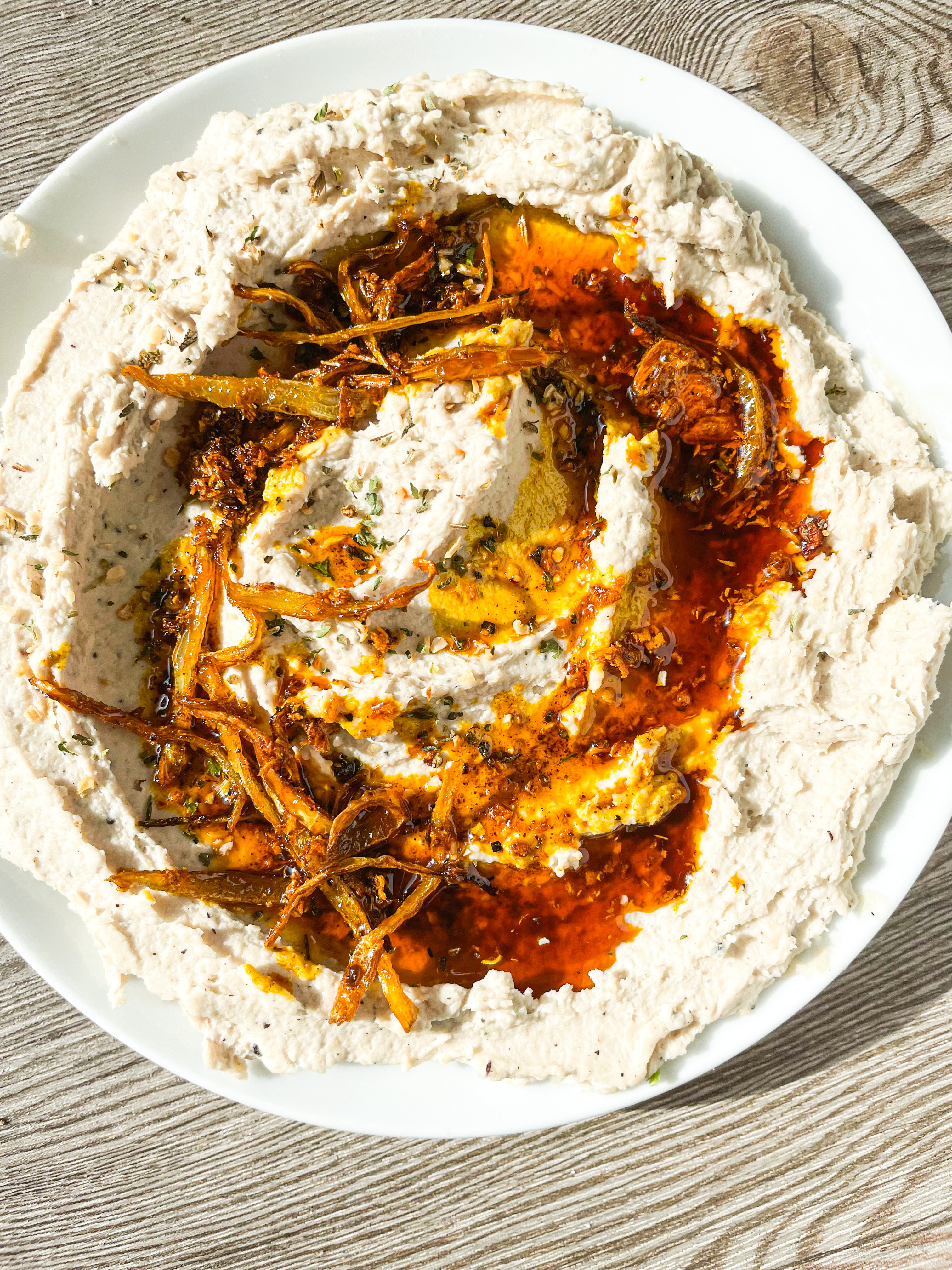
How are we making this dip indigenously West African?
The base of this recipe is Bambara beans, which have a very similar flavour to chickpeas. We will follow this with some tahini, which Africa also has a claim to. I do not want to overcomplicate the recipe so I kept the lemon juice, salt and pepper. For an added spicy kick, I used Melegueta pepper or better known as grains of paradise. This spice is known as a false pepper — it is not part of the peppercorn family but has some heat to it. It has been used for centuries as a spice in many West African dishes. For the pièce de resistance, I topped it with hot red palm oil, flash-fried onions, garlic and dawa dawa.
Substitutions
This dish is very customizable. You can keep elements of the ingredients and swap some for ingredients more available to you. I do encourage people to try and shop for these ingredients at local West African stores (please check my FAQ for more details) and purchase some of these ingredients. The grains of paradise can be omitted and substituted with more black pepper. You can also adjust the salt and tahini levels to your own preference. I will recommend people stick with the Bambara beans, dawa and red palm oil because they have such a unique flavour. For more details on grain of paradise, check out this blog post. For more info on red palm oil, please check this blog post.
1. the night before, soak the Bambara beans in a lot of water and baking soda. The baking soda starts the process of breaking the Bambara bean's outer layer down. 2. The next day, rinse out the beans and boil with 4 litres of water for 1.5 hours or till tender. You can also use a pressure cooker to cook these beans; cook the beans in about 2 litres of water for about 30 minutes. 3. Once the beans are nice and tender, place them in a food processor and process for a few minutes 4. Add the tahini, lemon juice, 3 cloves of garlic grated, black pepper, grains of paradise, then process again till smooth. 5. Add salt to taste. I added about 1/2 tsp. 6. To thin out the mixture, I poured in some water (4 tbsp) to loosen up the texture. Add more water for an even looser texture. 7. Once the hummus was done, I spread it on a plate and moved on to the oil 8. In a pot, heat the red palm oil till melted. Add the onions, dawa dawa, and 1/4 tsp of salt and saute for a few minutes. Drizzle on top of the hummus. 9. Serve with your choice of veggies or chips. I served mine with tostones. ** for the grains of paradise, you can substitute it with black pepper.Bambara Bean Hummus
Ingredients
Instructions
Notes

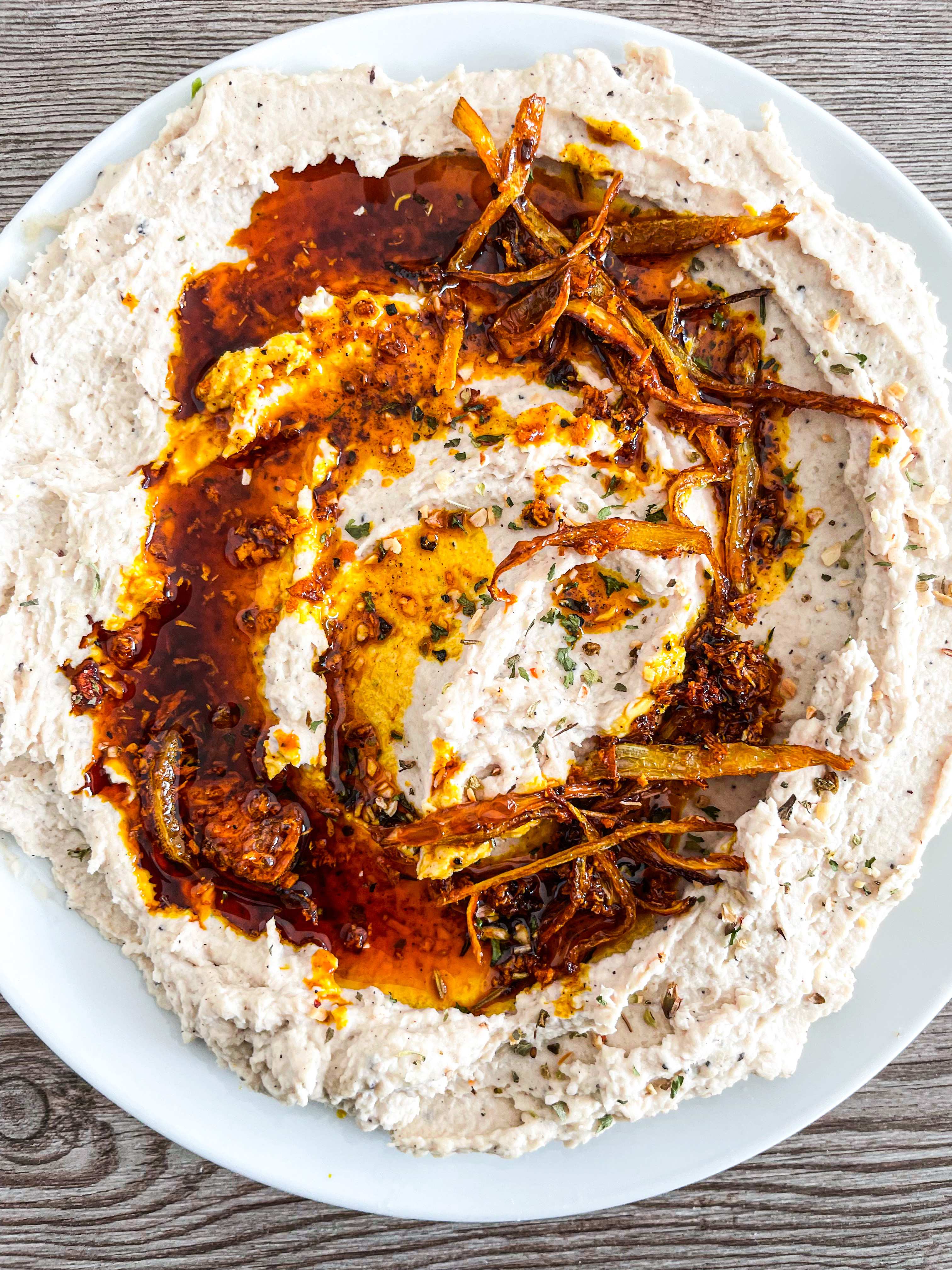
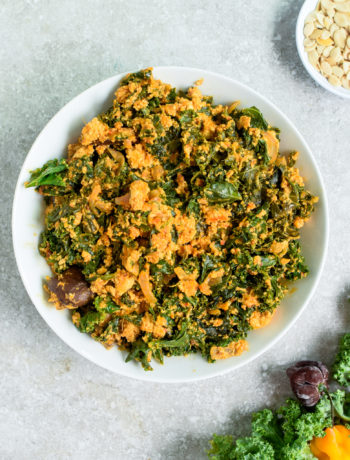
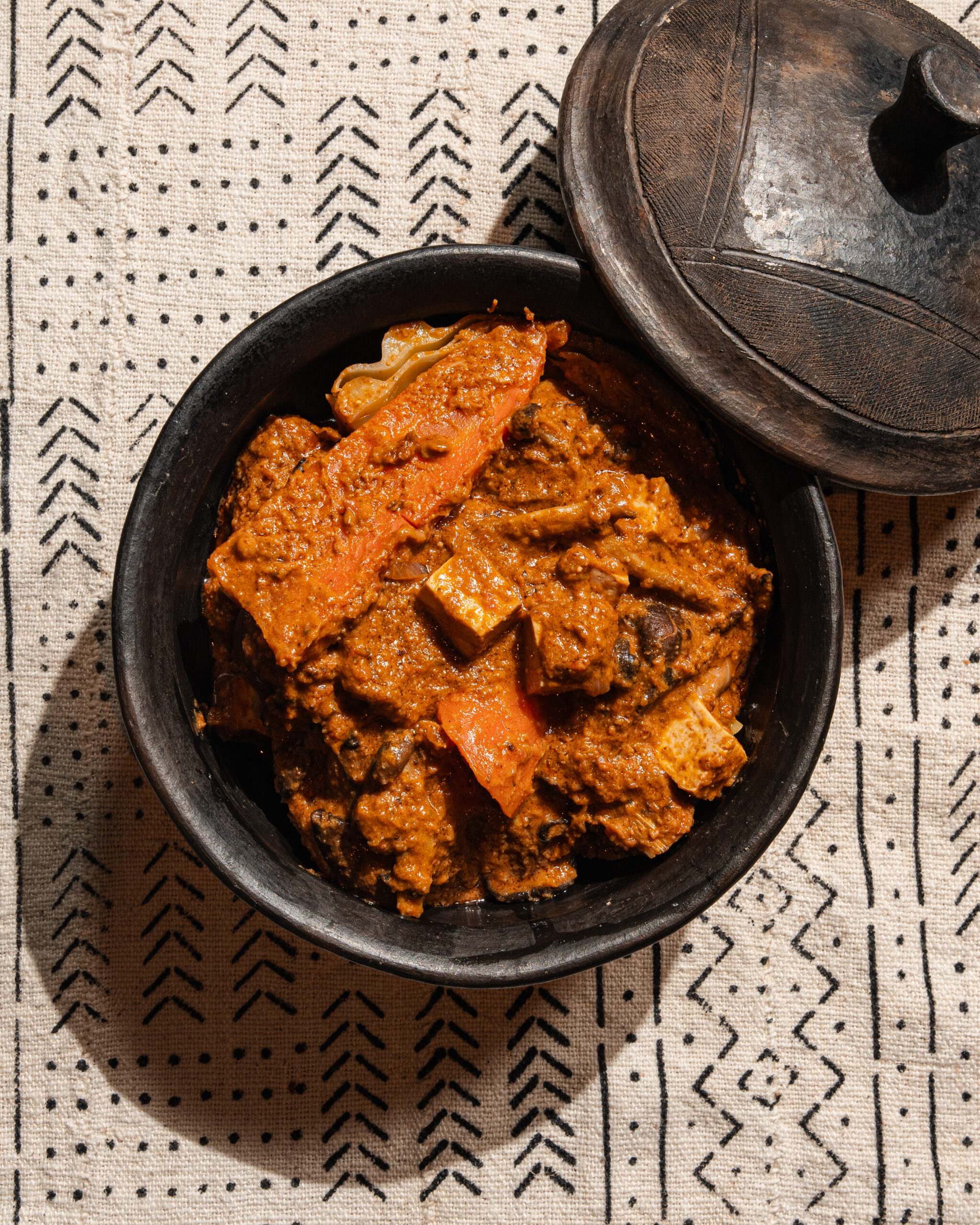
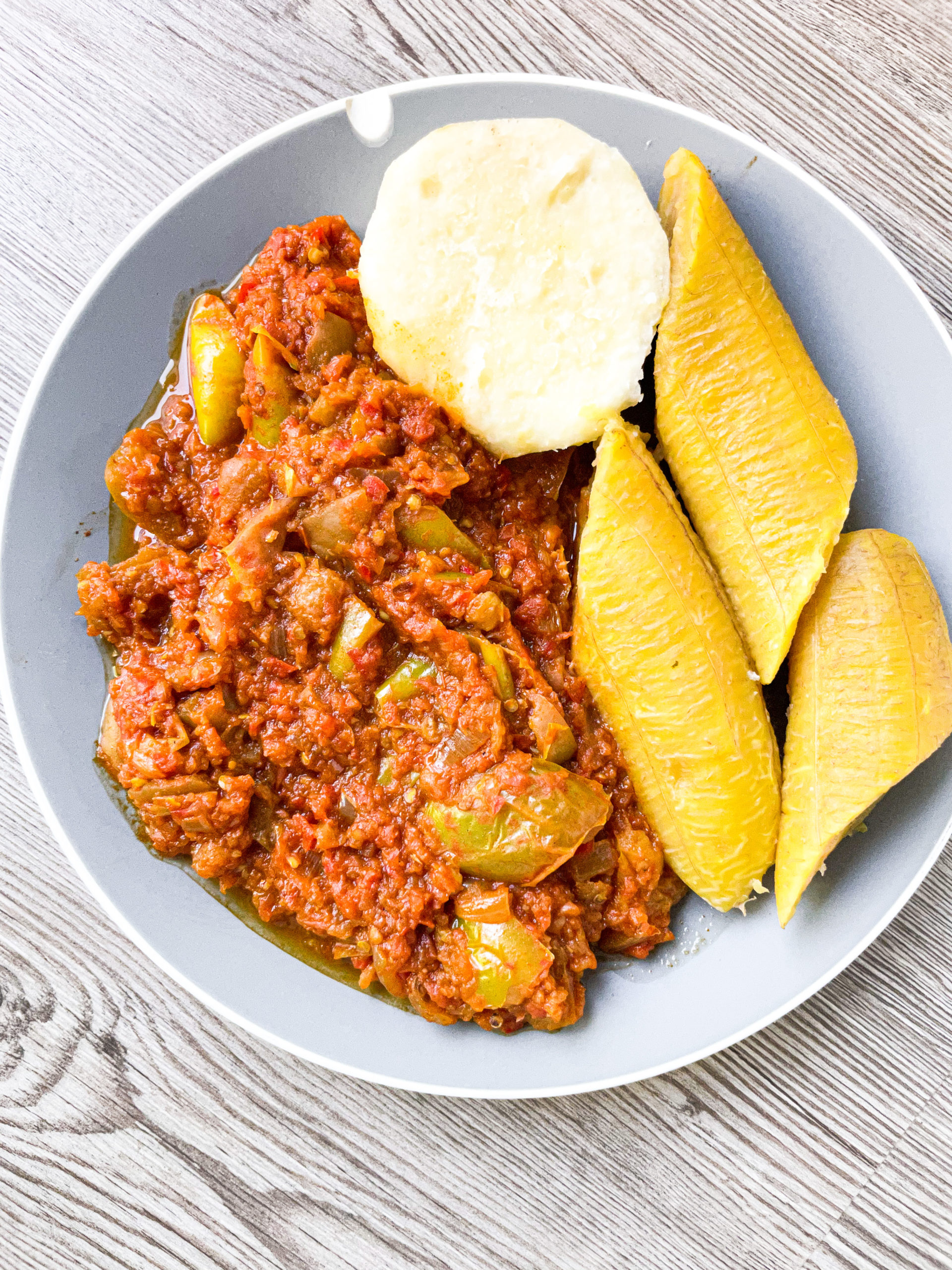
1 Comment
Plantain "Gnocchi" - The Canadian African
December 1, 2022 at 4:12 am[…] umami oil from my Bambara bean hummus […]